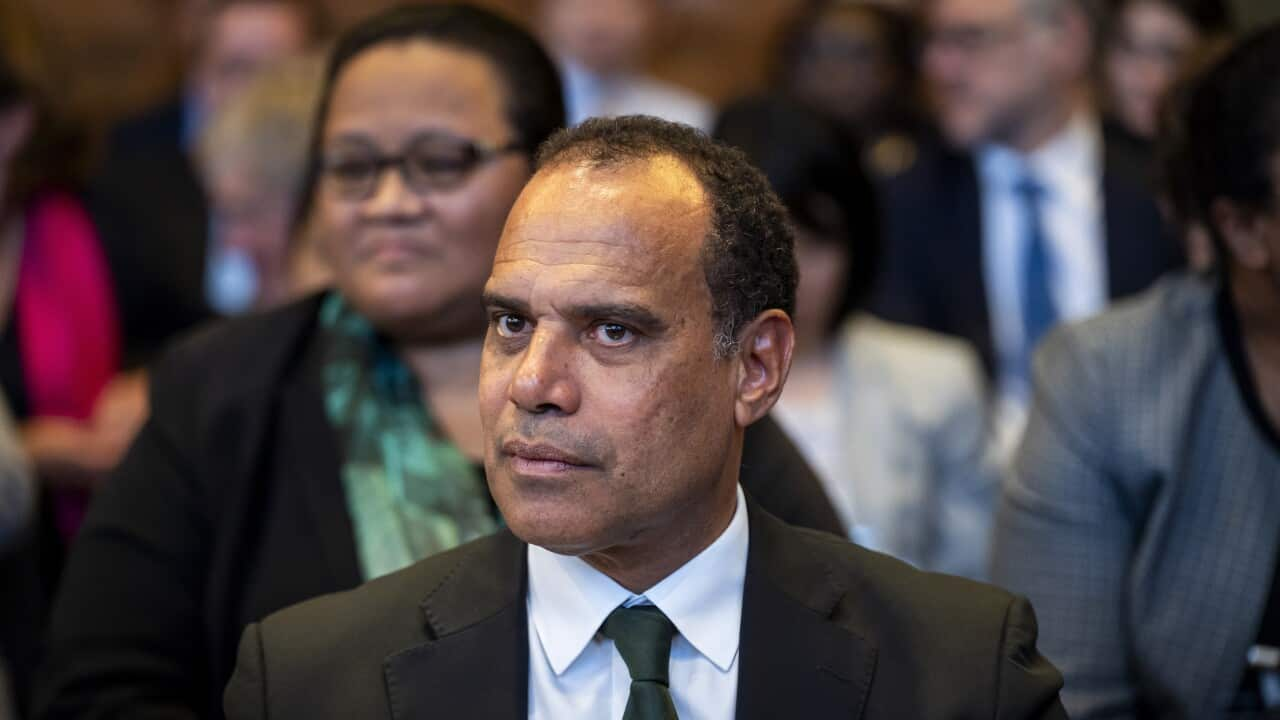Vanuatu's climate change minister has criticised the expected approval of the North-West Shelf gas project as "internationally wrongful" and legally contentious, as Australia's climate record comes under close scrutiny at the Pacific Islands Forum.
Speaking to Australian reporters on the sidelines of the leaders' meeting in Honiara, Ralph Regenvanu said Australian justifications for its handling of the domestic energy transition are no longer tenable following a landmark legal ruling in July.
On Wednesday, the Australian Financial Review reported a final approval decision over Woodside's planned expansion of the Karratha export hub could be made as soon as Friday, after parties involved in a related federal court action were given a warning of an imminent decision.
A 2024 analysis from the Australian Conservation Foundation warned the lifetime environmental impact of the project could total more than 13 times Australia's annual emissions.
When asked by SBS News about how the project's likely approval would be received in the Pacific, Regenvanu pointed to an International Court of Justice (ICJ) ruling pursued by Vanuatu — which found countries have legally binding obligations to prevent and combat climate change — and can be held liable for loss and damage.
"The advisory opinion of the ICJ made it clear that going down the fossil fuel production expansion is an internationally wrongful act under international law," Regenvanu said.
"The argument Australia has been making that the domestic transition is sufficient under the Paris Agreement is untenable. You've got to deal with fossil fuel exports as well."
Regenvanu said he expressed his concerns in person to Foreign Minister Penny Wong during an August visit by senior ministers.
He also said Australia would need to "talk seriously about addressing its fossil fuel production pipeline" if it is to co-host the COP31 climate summit with the Pacific — pointing to lingering tensions over its past emission record.
"If Australia makes a change for the better, I think it would be, it would lessen that tension," he said.
Shortly after Labor's election landslide, Environment Minister Murray Watt gave Woodside's proposed $30 billion expansion "conditional approval" in June.
In the months since, there have been ongoing negotiations between the energy giant over the environmental conditions that will be imposed on the project, located near world heritage-protected Indigenous rock art.
Asked about whether his government would heed Pacific calls to stop approving fossil fuel projects, including coal mines, Prime Minister Anthony Albanese asserted Australia sets its own energy policy.
"What we're doing is transitioning in a way that ensures that there's energy security, that ensures that there's community support for action, and my government's committed to action on climate change," he said on Wednesday.
"Action on climate change is the key to credibility ... the entry fee, if you like, to credibility in the Pacific."
Australia will provide an initial $100 million to establish the Pacific Resilience Facility, a fund operated by the region to provide climate finance for mitigating and responding to the impacts of climate change.
"Why is it value of money for Australians? Because climate change is a global circumstance," Albanese said.
"We need to encourage positive actions for others as well, and in the Pacific, we need to provide support."
Albanese expressed confidence the joint bid with the Pacific to host the COP climate summit in Adelaide next year had "unanimous" support among leaders of the bloc.
Regenvanu said the summit, if held, must deliver an "abundant strategy" to help Pacific nations create "the first fossil fuel-free region of the world".
For the latest from SBS News, download our app and subscribe to our newsletter.

